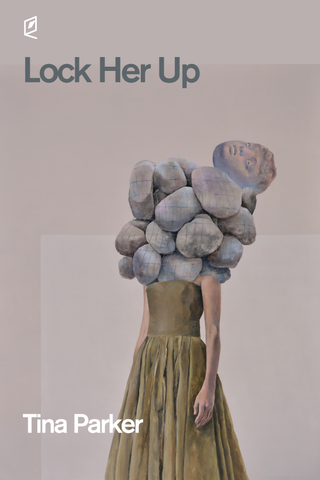Wow. This is heavy stuff. I cannot read the words in the title without hearing them ring through a huge crowd of people with a political enemy stoked by men who had themselves committed crimes beyond what she never envisioned, let alone committed. Empathy – that precious trait of those we admire most – jumps out at me when I pick up this book because I know Tina Parker as a sweet mother and housewife very different – except in the very most elemental ways - from those she memorializes in this collection. Yet Tina knows that in a patriarchal society, men have the power to lock up women who are not obedient, and she empathizes with those who “there, but for fortune, may go you or I” – an old saying made into one of Phil Ochs’ great song lyrics and then made famous by Joan Baez’s compelling voice. Tina Parker researched this book in the archives of the Southwestern Lunatic Asylum in Virginia, not far from where she grew up. And when I think about the state of Virginia and punished purported lunacy, what springs right into my mind is Virginia’s hero – Patrick Henry – who shackled his wife in his basement, and assigned one of the enslaved women on his plantation the task of watching her, both imprisoned by his arbitrary, pernicious, power. These poems are, oh, such an important reminder of ill-begotten power and the way it can tarnish, even destroy, minds and bodies of real people who matter. “Tina Parker’s haunting new collection Lock Her Up is a tribute, a beautifully rendered defense of women who throughout the late 1800’s and mid-1900’s were admitted into the Southwestern Lunatic Asylum in Virginia. It is an examination of the platitudes, misdiagnosis and treatments administered to women who needed succor not restraint, understanding not punishment; women who had been set aside by their families or bored husbands, were abused, widowed or their children dead or taken from them. This poet has done her research. The day they came for me/ I cartwheeled into the sea/ And sang open the snow. Reader, you will wince, you will curse, you will weep.”— Kari Gunter-Seymour. “Parker’s haunting poems unlock and venerate our foremothers who were ‘right troublesome and at times excited’ so that we can all be reminded: ‘See I am here / Please tell them / I was here.’” – Marianne Worthington.
Lexington, Kentucky: Accents Publishing, 2021. 59 pages. Trade paperback.
